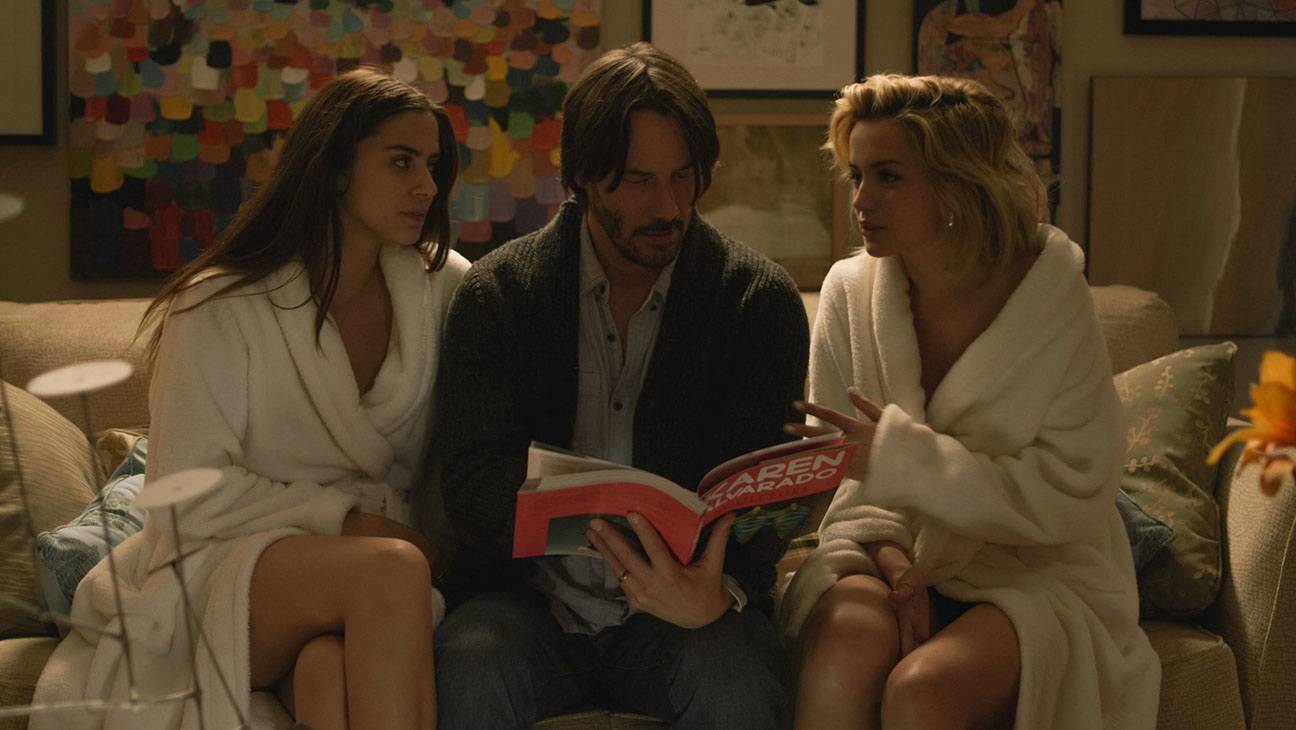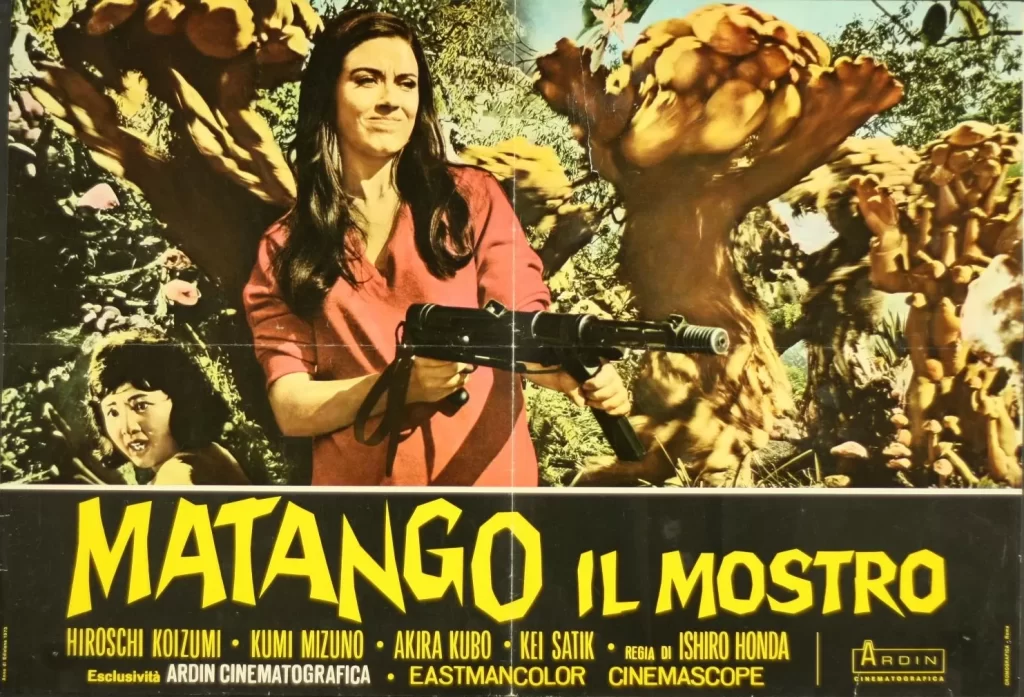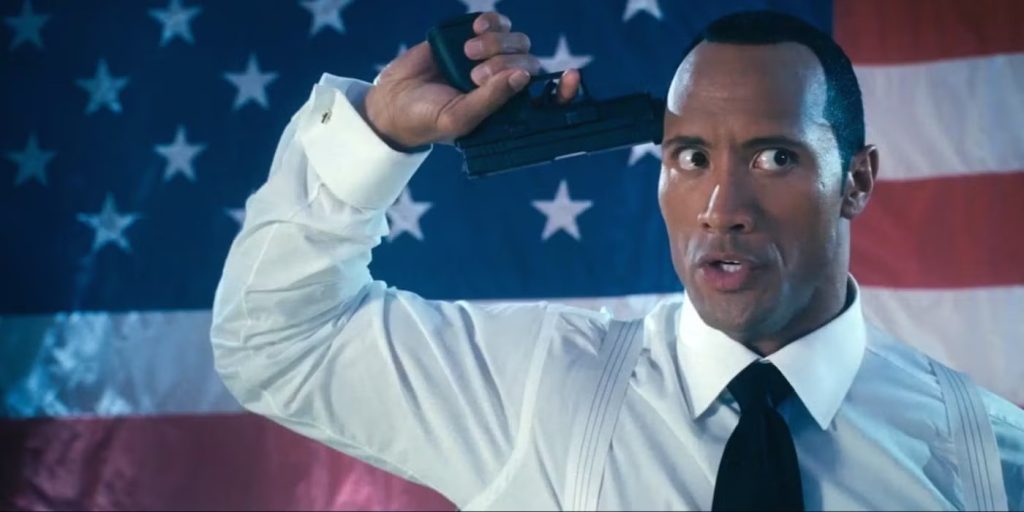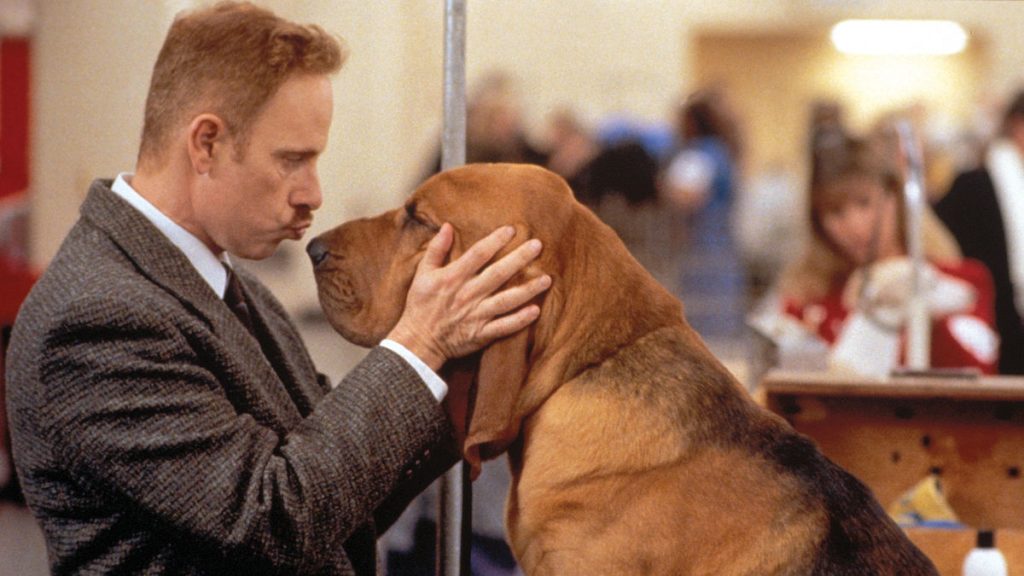This article is based on a true story. It should serve as a reminder that fate allows no man to insulate himself from the temptation of free f**king pizza.
In 1969 Los Angeles, Columbia Records employee Michael Ronald Ross was driving to his home in Laurel Canyon when he saw a pretty young hitchhiker by the side of the road, a girl named Donna. Despite the fact that this was the same summer that Sharon Tate, her companions, and married couple Leno and Rosemary LaBianca were murdered by members of the Manson Family invading their homes, Ross picked Donna up and brought her back to the place he was staying. Though initially smitten with her, Ross soon found Donna an unwelcome guest as days turned into weeks, the girl started asking him to drive her to meet her dealer, and she burnt all the spoons in the home he was subleasing. Eventually, Ross dropped her off at a place of her choosing, and barely heard from her again.
At least, that’s how Ross explains the origins of the story that would eventually be filmed numerous times, most prominently as 1977’s Death Game. However, according to Eli Roth, who co-wrote and directed a remake of Death Game in 2015 entitled Knock Knock, Ross allegedly told him that the incident happened to Ross’ co-writer Anthony Overman, and not just in part but in full. That full story, as seen in Death Game and Knock Knock, involves a family man who’s just entered his middle age (Seymour Cassel in 1977; Keanu Reeves in 2015) finding himself left alone at home for a weekend while his wife and children travel. Arriving unexpectedly at his Southern California house are two nubile young girls (Sondra Locke and Colleen Camp in ’77; Lorenza Izzo and Ana de Armas in ’15) who have a sob story about being lost and in need of assistance, which the man politely provides. Soon enough, the girls have seduced the father into a hedonistic three-way, and the morning after refuse to leave, insinuating themselves into the man’s life. Things only escalate from there, with the girls first announcing they’re underage and blackmailing the man into letting them stay, then later putting him through a bit of perverse theatre as they lambast his actions and claim that his life is to end when the weekend’s over.
Death Game’s underground notoriety, its decades lost in the distribution wilderness, its plethora of alternate titles, its A-list stars (both in the original and in Knock Knock) and the existence of some unofficial porn remakes—Little Miss Innocence from 1973 and the Spanish Viciosas al desnudo from 1980—give the core story a power that’s part urban legend and part Grimm’s fairy tale, all wrapped up in a heady ‘70s exploitation haze.
It’s a good thing the ethical dilemmas at the core of the story hold such power, because the films themselves are more broad Rorschach blots than well-crafted moral polemics. That’s because Death Game was put together from a myriad of disparate parts: when Ross and Overman’s script was acquired by Clint Eastwood’s Malpaso productions, Jo Heims rewrote the script with an eye for Eastwood to direct. Heims had written Play Misty For Me and Breezy for Eastwood, and turned Ross and Overman’s hippie girl nightmare into a bit more of a Hitchcockian May-December romance before Eastwood ultimately passed on making the film. The script was so malleable in its fable-like story and blend of hot topic issues that Ross and Overman almost got Richard Pryor to play the lead in a version they were to produce, giving the movie a racial injustice angle. However, that was not to be, and the script then made its way to millionaire Peter S. Traynor, who had started his own production company and wanted to use the project to make his directing debut.
Novice director Traynor found the production of Death Game fraught with problems, chief among them the dissatisfaction of star Cassel, which escalated to the point of the actor challenging Traynor to a fight one night on set. Still, the talent present in front of and behind the camera—Cassel, Locke, and Camp, as well as cinematographer/editor/voice actor David Worth and co-production designer Jack Fisk (who had assistants by the names of Sissy Spacek and Bill Paxton)—were mighty enough that Death Game is at least endlessly watchable.

By refusing to conform to any set structure or tone, the film is genuinely surprising at every turn, and has that independent exploitation, New Wave sense of danger about it, like the people who made it may actually have been a little insane themselves. Still, its ultimate message is muddled—where Little Miss Innocence is surprisingly blunt and direct about its tale of abused girls getting back at men (who they believe are all perverted exploiters of women beneath the surface), Death Game blends that concept with the Manson Family home invasions and fear of the counterculture, adding a class warfare element on top of its generation gap. While the film’s abrupt ending of an SPCA truck running over the girls was allegedly devised while shooting, it unintentionally recalls the finales of the contemporary Umberto Lenzi giallos Orgasmo (1969) and Oasis of Fear (1971), both of which were riffs on the finale of Easy Rider (1969) as they depict hedonistic counterculture youths reaching a bitter end.
The tonal confusion of Death Game made it intact into Roth’s Knock Knock—one of the first results in Googling the film is the “People also ask” prompt, “What was the point of movie Knock Knock?” Where Death Game was released too late to capitalize fully on its themes that were most topical for the early ‘70s, Knock Knock was released just as the #MeToo movement was building momentum, leaving it a bit of a dated film where feminism is concerned. Some claim that Death Game and Knock Knock are secretly feminist films, but the movies themselves don’t make that interpretation nice and clean. Yes, the male gender does not come off well in either film, but part of each movie’s perversity lies in casting actors in the male lead whose personas are not only traditionally masculine but ideally so—Cassel and Reeves don’t tend to play a lot of odious bastards, in other words. Meanwhile, the admittedly manipulative actions of the women and their murder of innocent victims (a delivery boy—and a cat!—in Death Game, the wife’s assistant in Knock Knock) don’t allow their characters to be vengeful heroines, either. This is a feature, however, not a bug. Just as in many a social satire (such as Michael Haneke’s Funny Games), there are no cut-and-dried characters of black and white, just shades of morally dubious gray. Knock Knock isn’t as deliriously insane as Death Game, but it retains a level of demented camp that keeps it hilariously uncomfortable.
Both Death Game and Knock Knock’s relative places in history make the pseudo-social experiment at their core even more revealing. In Death Game, George Manning (Cassel) cheating on his wife with Donna (Camp) and Jackson (Locke) isn’t the most major sin he’s taken to task for. Instead, it’s his betrayal of his family, with his status as a patriarch torn down by Jackson and Donna bit by bit. The film itself gleefully joins the girls’ literal and metaphorical destruction of the patriarchy with mawkish original songs entitled “Good Old Dad” and “We’re Home.” It’s also made clear that Jackson and Donna are engaged in a sapphic relationship, making George even more useless, feeble, and disposable as Jackson parades around in his clothes while Donna dons his wife’s. It’s as good an example as any of the way traditional gender roles and the idea of the “nuclear family” was forever dismantled in the wake of the ‘70s.
In Knock Knock’s 21st century setting, Genesis (Izzo) and Bel (de Armas) make mention of Evan (Reeves) betraying his family, but they’re far more interested in emasculating Evan and destroying his carefully constructed public image as a “good guy.” In contrast to Death Game, Knock Knock knows that one’s public image carries far more weight in the social media age than it ever did before, and where Jackson and Donna may or may not have really been underage, Genesis and Bel make sure Evan believes that they are for the majority of the film, only revealing that they’re not at the end. In other words, Death Game’s daddy issues are more to do with the patriarch abusing or shirking his responsibility; Knock Knock’s are more about the abuse of minors. After enduring the girls and their various tortures, Evan seemingly becomes less concerned with saving his marriage or keeping his family together—he’s mostly worried about becoming labeled as a pedophile, correctly understanding that the label is nearly impossible to get rid of in the current climate. The fact that Genesis and Bel were lying about that, in addition to their various other semi-spontaneous crimes, brings up the notion that they may be doing it all for the lulz, adopting that younger Millennial and Gen-Z style of nihilistic amorality.
While there’s certainly a feminist angle to the films, Death Game and Knock Knock are ultimately a masochistic male fable. The movies, largely written and directed by men, are a way of criticizing straight, cisgendered male weakness, male appetites, and male cruelty all while acknowledging that every straight man would fall for the same trap. The “free pizza” that Evan compares the girls to is indicative of how the scenario remains timeless: it so perfectly strokes a middle-aged man’s ego (he’s still cool, he’s still desirable, he’s still adventurous, he’s in control) that saying no was never actually an option. The fear inherent in the premise, that women not only know that a man’s egotistic bluster is false but are able to use it as a weapon, means the home invasion aspect of the story is completely perfunctory—the self-destructive rot of masculinity was already inside the house, and no man can isolate himself from it forever.



